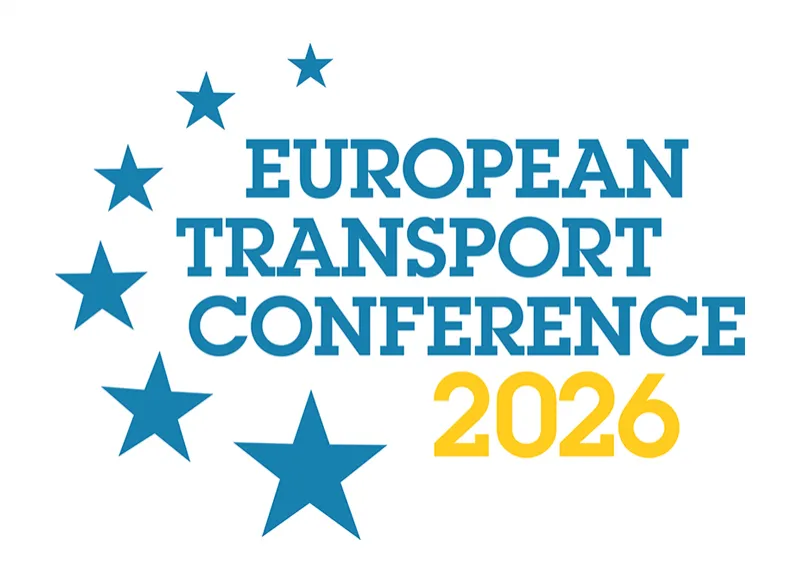-
Past ETC Papers

Browse, search and view papers from the past AET Conferences.
-
Members' Area

AET promotes networking and exchange of ideas, information and opportunities amongst members.
ETC Conference Papers
Conference Past Papers Repository
Modelling the Effect of a Nationwide Mobility Service Guarantee on Travel Behaviour Using the Strategic Model MARS
Seminar
Day 1 (7 Sep 2022), Session 2, DISRUPTIONS IN URBAN MOBILITY, 14:00 - 16:00
Status
Accepted, documents submitted
Submitted by / Abstract owner
Barbara Laa
Authors
Barbara Laa, Paul Pfaffenbichler
Short abstract
The concept of a nationwide mobility service guarantee is applied to Austria, using the strategic LUTI model MARS. We simulate different scenarios with a combination of push and pull measures to assess the impact on travel.
Abstract
Transport systems focused on the private car are increasingly proving to be problematic. This is not only due to environmental impacts such as CO2-emissions and extensive land use but also considering social justice issues (Mattioli, 2016). Nevertheless, restrictive measures to curb car use such as an increase in fuel prices can have negative implications for people with low income who live in car dependent conditions. Therefore, solutions should consider appropriate sustainable alternatives as well. One of the approaches that tries to tackle social and ecological challenges alike is the concept of a nationwide mobility service guarantee (MSG). The Austrian government is committed to introduce such a guarantee (BKA, 2020). Not yet defined in detail, the concept shall ensure that every person in Austria can satisfy their mobility needs in a sustainable way (e.g. without having to use a private car).
In a previous study, Laa et al. (2022) developed different design scenarios for an MSG in Austria with the help of expert and user workshops. According to those scenarios, the guarantee will be based on the provision of classic public transport (PT) services of high quality (i.e. great temporal and spatial availability for a wide range of users), complemented by demand responsive transportation (DRT) as well as “smart mobility services” for remote areas where traditional PT cannot be delivered efficiently. Additionally, conditions for walking and cycling will be improved for short distance trips and as a feeder mode for PT. Booking, payment and usage shall be as easy and integrated as possible, e.g. as part of a Mobility as a Service (MaaS) approach. Thus making the system attractive and competitive against private motorized modes.
We simulate these scenarios using the System Dynamics model MARS (for descriptions of the basic structure, see Pfaffenbichler et al. (2010)) in order to assess the possible impact on travel behavior. We look at the indicators of modal split, CO2-emissions and km-travelled per mode. For this study, we adapted the MARS Austria model MARS-UBA, most recently applied for the quantification of back-casting to reach the national goal of climate neutrality in the year 2040 for the passenger transport sector (Angelini et al. 2022).
While the concept of the MSG can be considered as a pull measure to improve public transport services and conditions for active mobility, the scenarios also combine the approach with push measures to curb private car use, like carbon taxes, in different intensities. Sensitivity testing shows the impacts of single measures as well as the combined effects and sets them into relation with climate goals.
Angelini, A., Heinfellner, H., Pfaffenbichler, P., Schwingshackl, M. (2022). TRANSITION MOBILITY 2040 - Entwicklung eines Klima- und Energieszenarios zur Abbildung von Klimaneutralität im Verkehr 2040, Umwelbundesamt GmbH, forthcoming.
Bundeskanzleramt (BKA). (2020). Aus Verantwortung für Österreich. Regierungsprogramm 2020 – 2024. Vienna. URL: https://www.bundeskanzleramt.gv.at/bundeskanzleramt/die- bundesregierung/regierungsdokumente.html
Laa, B., Shibayama, T., Brezina, T., Schönfelder, S., Damjanovic, D., Szalai, E., Hammel, M. (2022). A Nationwide Mobility Service Guarantee for Austria – Possible Design Scenarios and Implications. Manuscript submitted for publication.
Mattioli, G. (2016). Transport needs in a climate-constrained world. A novel framework to reconcile social and environmental sustainability in transport. Energy Research & Social Science, 18, 118-128. doi: 10.1016/j.erss.2016.03.025
Pfaffenbichler, P., Emberger, G., & Shepherd, S. (2010). A system dynamics approach to land use transport interaction modelling: the strategic model MARS and its application. System Dynamics Review, 26(3), 262-282. https://doi.org/10.1002/sdr.451
Programme committee
System Dynamics
Topic
Behaviour Change – the impacts of the climate emergency and COVID-19 on long term travel patterns
Documents:

Association For
European Transport
Forester House
Doctors Lane
Henley-in-Arden
Warwickshire, UK
B95 5AW
+44 (0) 15 64 793552
VAT number: 710 1866 64
Conference Supporters & Endorsers




Legal Entity
The Association for European Transport is registered as an Association ('vereniging') with the Chamber of Commerce for Haaglanden in The Netherlands under company number 27170096.
Built on Zenario




